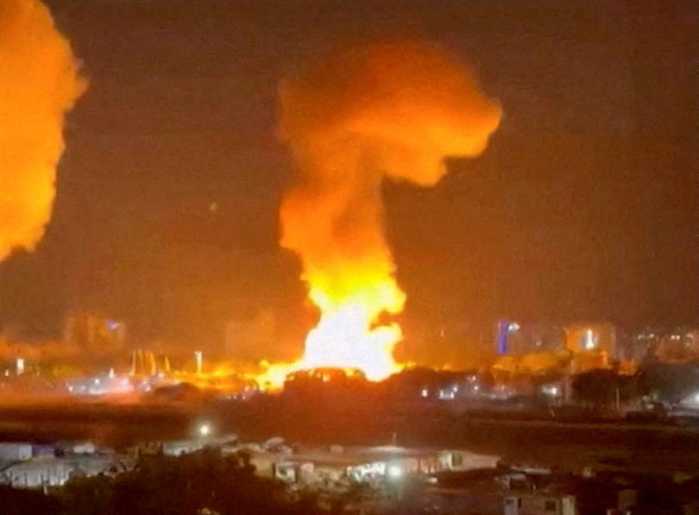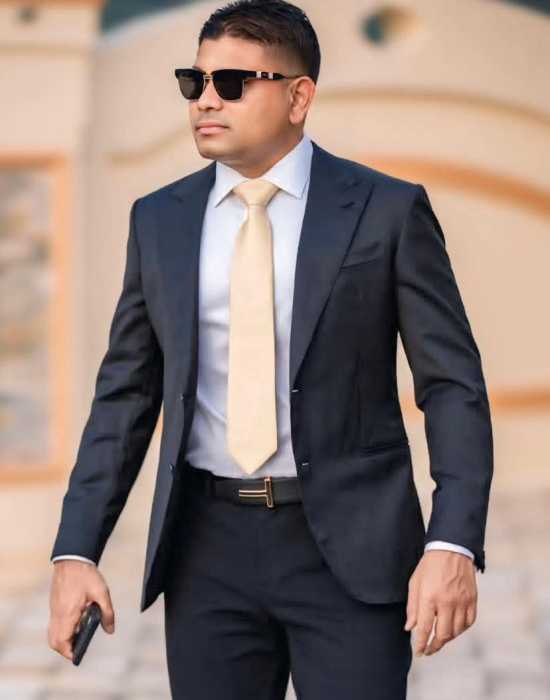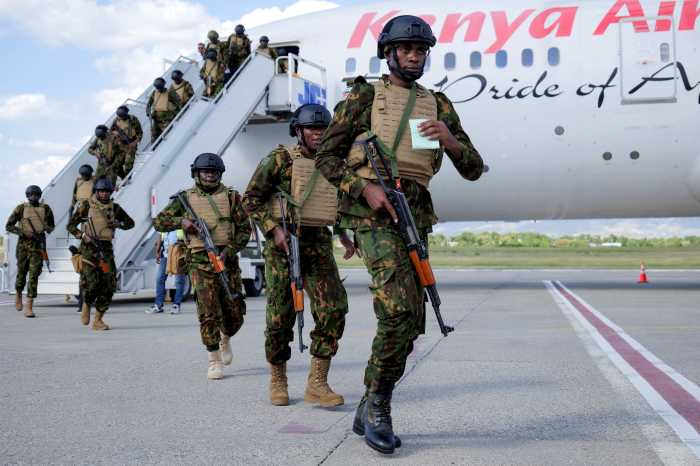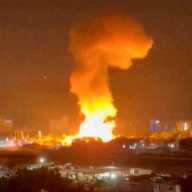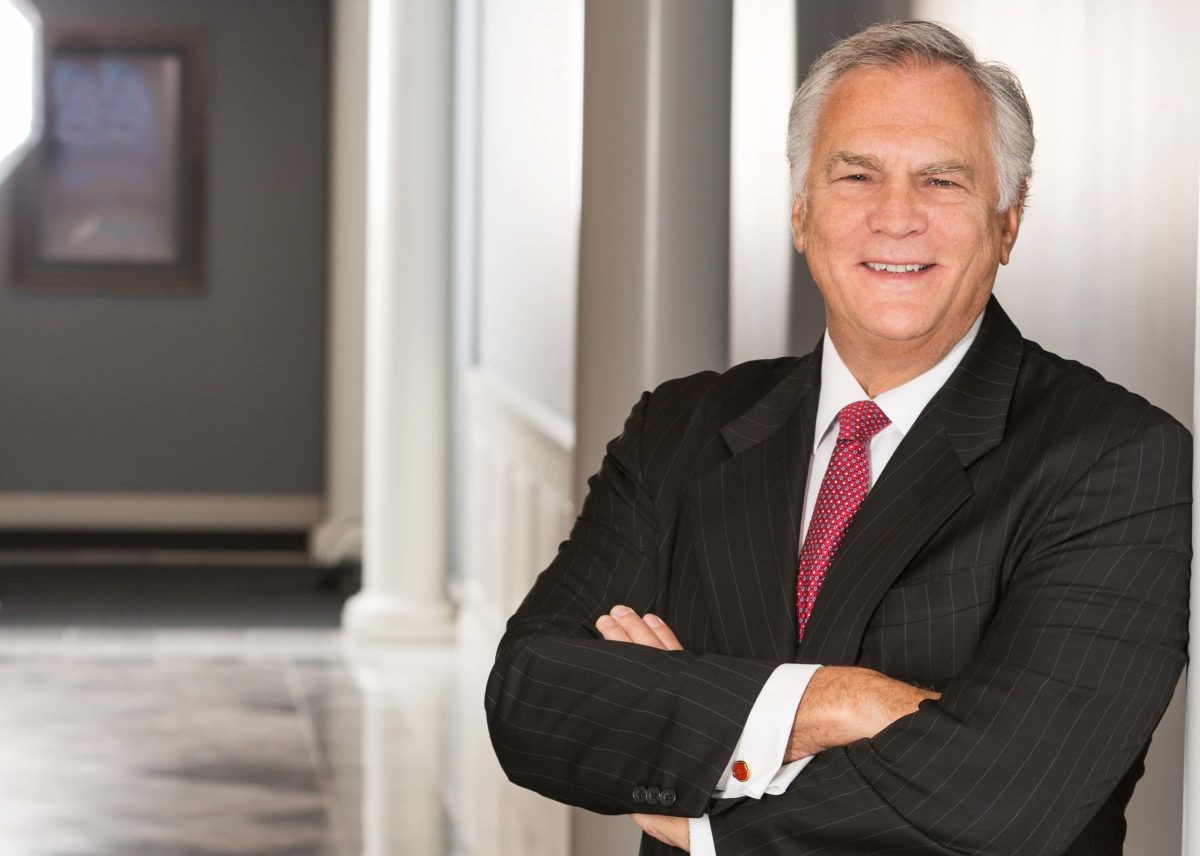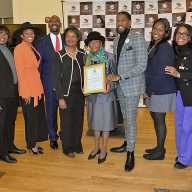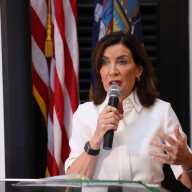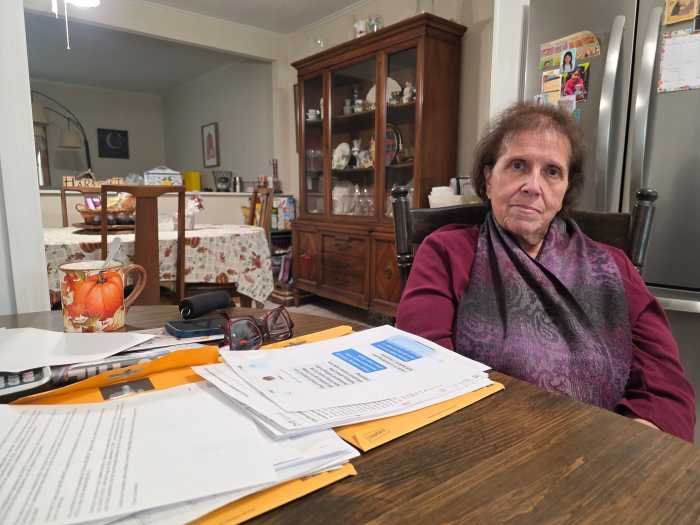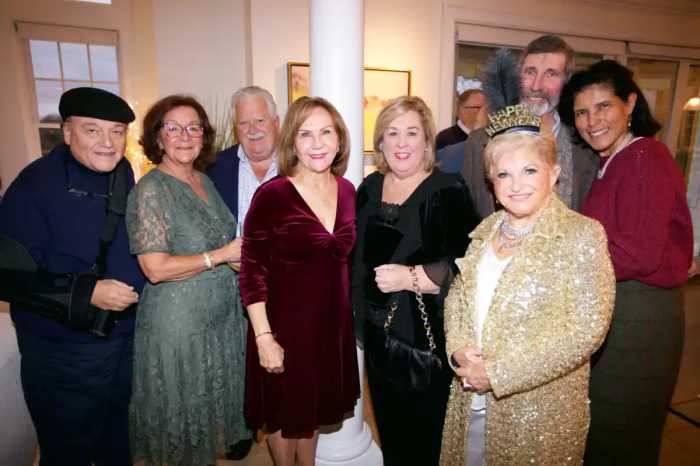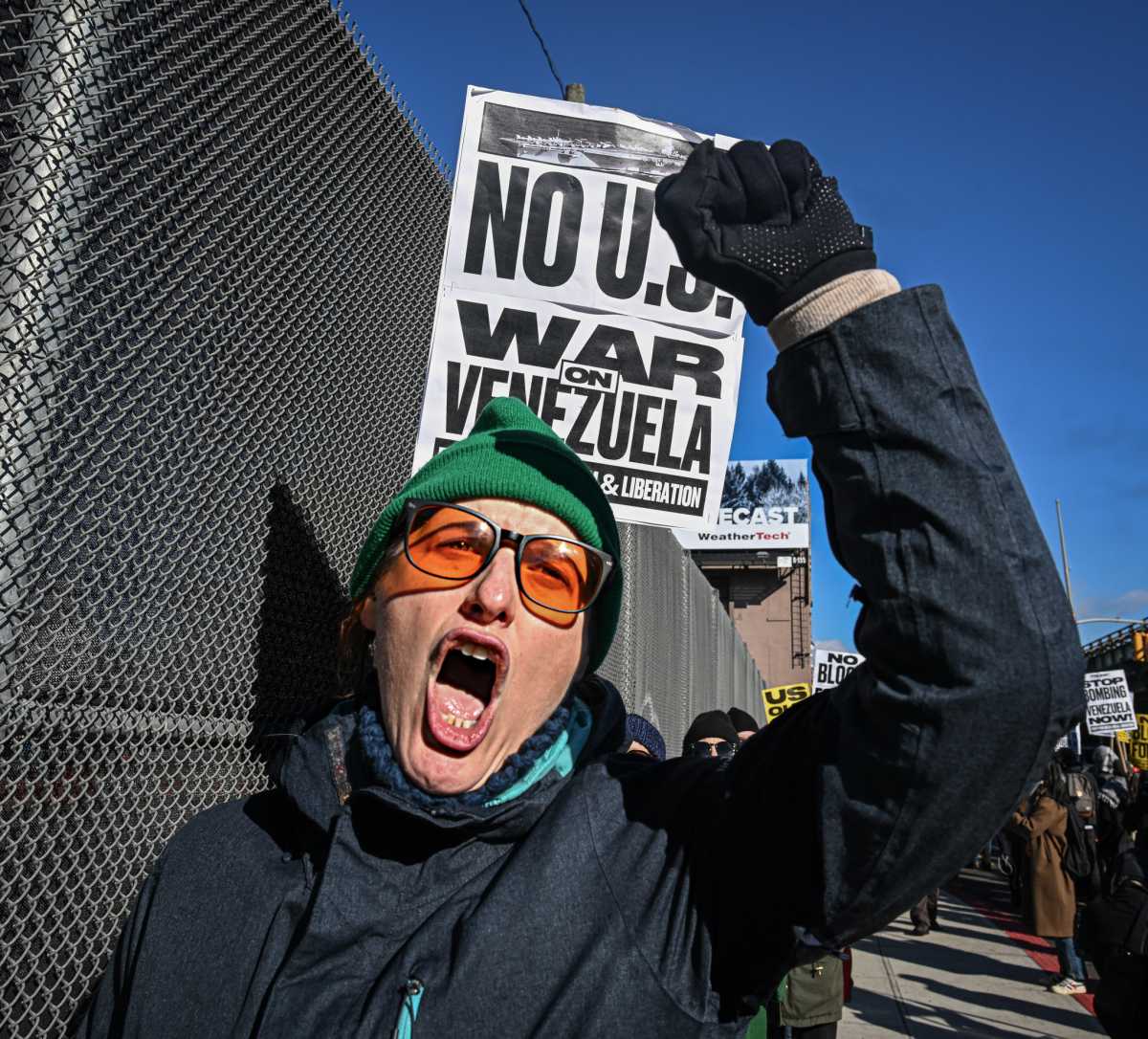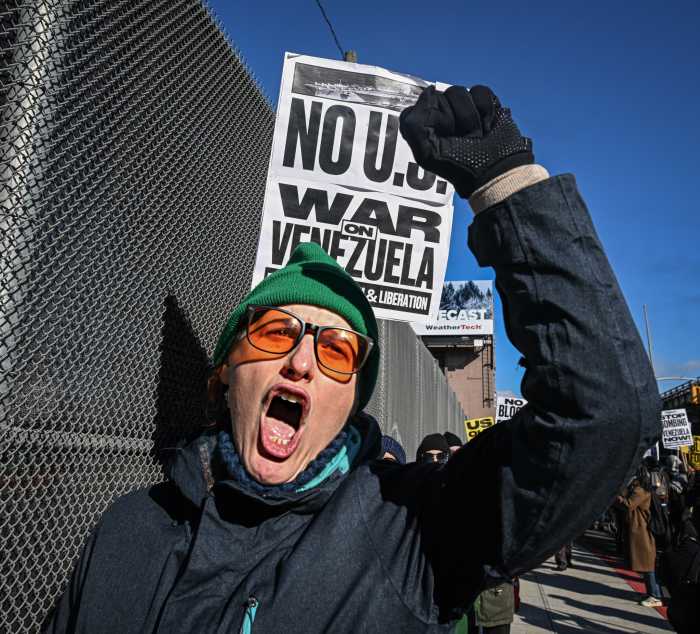Two high-ranking United States Democratic Congressional Representatives on Friday strongly condemned the Trump administration’s interference in Guyana’s elections, saying that it infringes on the Caribbean Community (CARICOM) member-state’s sovereignty.
Caribbean American Congresswoman Yvette D. Clarke and African American Congressman Hakeem Jeffries — both members of the New York Congressional Delegation — said they were perturbed by this week’s imposition of visa restrictions by the Trump administration on “Guyanese individuals undermining democracy” in light of the disputed Mar. 2 general elections in Guyana.
“What I have consistently said is that Guyana, as a sovereign nation, has a responsibility to conduct free and fair elections, and that every asset under its Constitution must be adhered to in order for the democratic process to reach its logical conclusion,” said Clarke, the daughter of Jamaican immigrants, in a television program. “It is my understanding that that process is not complete.
“So, for any entity, outside the Guyanese people themselves, to weigh in with their feelings of what is taking place is an infringement on the sovereignty and the democratic process of the nation,” added Clarke, representative for the predominantly Caribbean 9th Congressional District in Brooklyn and Vice Chair of the US House of Representatives’ Committee on Energy and Commerce.
“With the Trump administration, their motives are questionable,” continued Clarke, First Vice Chair of the US Congressional Black Caucus. “They have expressed and demonstrated to the American people their corrupt intent in other parts of the world. But those who will use them (Trump administration) as a legitimate arbiter of what is taking place (in Guyana), I would tell anyone who does that that they do that at the peril of essentially digressing in terms of their own credibility.
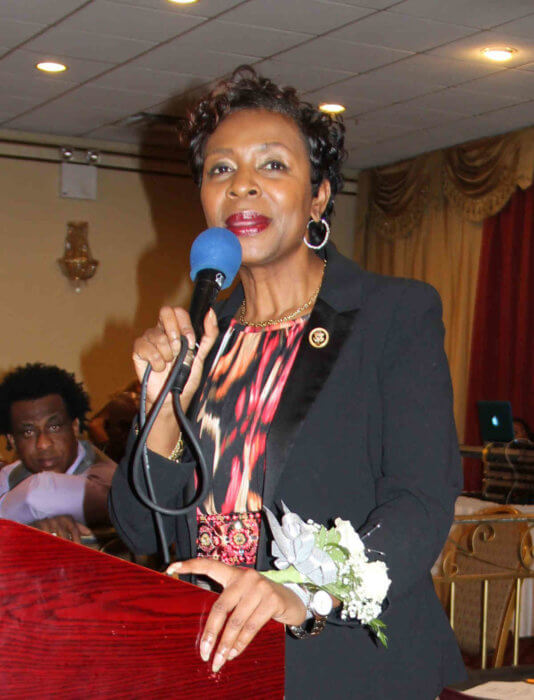
“When we look at what is taking place in Guyana, I’ve said to people: ‘What if Guyana was in the position that the US was in, when we had the Supreme Court look at the election of Al Gore and George W. Bush (in November 2000), would we have wanted Guyana to be putting out proclamation of sanctions for the United States because we were going through a process that had to review an election that took place in the United States?’” the congresswoman asked.
The Nov. 7, 2000 US Presidential election results between Gore and Bush were considered too close to call, with the US Supreme Court eventually ruling, a month later, in favor of Bush, over the disputed Florida vote count, even though Gore had won the popular vote overall.
Gore, however, lost the Electoral College vote, with Florida’s 25 electoral vote being key to Bush’s triumph.
“In the same way, Guyana is going through a democratic process to reconcile the voting dynamic within that nation, and I don’t believe anyone can reconcile that outside of the Guyana people,” Clarke said.
“It is important that the people of Guyana stay the course, and that they stay focused in making sure that they continue along the democratic path and process,” she added. “There’s a Constitution, and it’s a teachable moment, so that people understand what that process means and why it’s important to adhere to it.”
Without stating names, US Secretary of State Michael Pompeo last Wednesday announced that the Trump administration was imposing “visa restrictions on individuals who have been responsible for, or complicit in, undermining democracy in Guyana.
“Immediate family members of such persons may also be subject to these restrictions,” he said in a statement.
Pompeo said that, in his public statements since the elections, he has been “very clear that the United States stands with the Guyanese people and that there would be consequences for individuals who seek to undermine democracy.”
The US Secretary of State said the events following the March 2 poll “indicate that there are forces that have repeatedly refused to accept the will of the people at the ballot box.
“Guyana’s non-democratic trajectory is dangerous for its citizens and for the hemisphere as a whole,” he said. “I hope that Guyana’s leaders understand what is at stake if they continue down this path.”
Pompeo said the Trump administration’s action “is not about interference,” stating that “it is to send a clear message of the consequences of subverting democracy and the rule of law, which poses a danger to us and our hemispheric partners.
“We have long said that we have no preference for a winning party, as long as it is selected through a free and fair electoral process that is credible,” he said.
But Congressman Jeffries, who represents the 8th Congressional District in Brooklyn and Queens that juxtaposes Clarke’s 9th Congressional District, said the Trump administration has “consistently embraced dictators and autocrats in countries like Brazil, North Korea, Turkey, Russia and Saudi Arabia.
“They have done nothing to promote democracy throughout the world,” said Jeffries, a lawyer, who serves as the Democratic Party Caucus Chair in the US House of Representatives, in a statement.
“There is currently a contested parliamentary election in Guyana. The outcome is in dispute, much like in the United States during the aftermath of the 2000 presidential election between George W. Bush and Al Gore,” added Jeffries, who, on Jan. 15, 2020, was selected as one of seven House managers presenting the impeachment case against President Donald Trump during his trial before the United States Senate.
“With respect to the outcome of the election in Guyana, I take no position. Neither should the Trump administration,” continued the member of the House Judiciary Committee, who, on Dec. 18, 2019, voted for both articles of impeachment against Trump.
“Donald Trump regularly poisons the fabric of America’s democracy with his corrupt abuse of power and false claims of voter fraud,” Jeffries said. “The Trump administration is in no position to lecture Guyana or anyone else about democracy.”
CARICOM and the Organization of American States (OAS) say they will hold separate, special meetings next week on the Guyana elections stalemate.
The OAS said on Friday that its Permanent Council will hold a virtual special meeting, on Tuesday, “to consider the state of the electoral process in Guyana”, at the request of the Secretary General, Luis Almagro.


